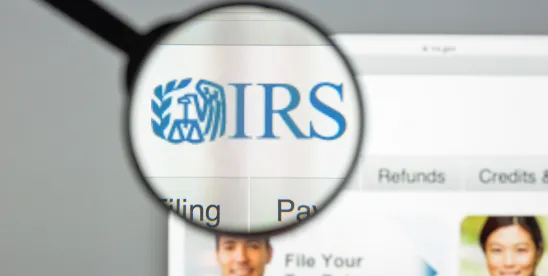Late last week, the Internal Revenue Service (“IRS”) and Department of the Treasury released final regulations relating to transfers of certain tax credits pursuant to Section 6418 of the Code (the “Code” and, such rules, the “Final Tax Credit Sale Rules”). The release of the Final Tax Credit Sale Rules follows the issuance of proposed regulations in June 2023, a comment period, and a public hearing (the “Proposed Tax Credit Sale Rules”). The Final Tax Credit Sale Rules largely adopt the Proposed Tax Credit Sale Rules, with a few minor exceptions.
The following provides a brief background of Section 6418 of the Code, as well as a summary of the key points from the Final Tax Credit Sale Rules, highlighting the changes from the Proposed Tax Credit Sale Rules.
Background to Section 6418 Tax Credit Sales
The Inflation Reduction Act, passed in August 2022, permits taxpayers to sell all (or a portion of) ITCs (including under Section 48E), PTCs (including under Section 45Y), Section 45X advanced manufacturing production tax credits, Section 45V hydrogen production tax credits, and several other tax credits, to an unrelated taxpayer. The election to transfer must be made no later than the due date for the tax return of the year in which the credit is determined. Once made, the election is irrevocable.
To purchase credits, the buyer must pay for the credit in cash, the buyer is not permitted to deduct the amount paid for such credit, and the buyer may not subsequently transfer the credit. The payment will not be included in the gross income of the seller. Penalties apply for excessive credit transfers.
Final Tax Credit Sale Rules
The Final Tax Credit Sale Rules largely adopt the Proposed Tax Credit Sale Rules, with virtually zero changes to the underlying substance. In response to the Proposed Tax Credit Sale Rules, the IRS received more than 80 written comments and heard testimony from 10 presenters at an August 2023 hearing. The IRS declined to incorporate various changes many were advocating for in the Final Tax Credit Sale Rules. Among the highlights:
- The prohibition on transferring bonus credit amounts separately from underlying credit amounts remains intact, with the IRS explaining that bonus credit amounts are not, in themselves, an eligible credit but only an amount taken into account to determine the single eligible credit with respect to an eligible credit property.
- The IRS declined to revise the Final Tax Credit Sale Rules to allow for transfers of tax credits following a lease passthrough election, meaning a lessee in an inverted lease transaction would not be allowed to transfer any tax credits under Section 6418 of the Code.
- The IRS declined to allow advanced payments for transfers of eligible credits, citing complex legal and administrative issues. Many commenters requested that the Final Tax Credit Transfer Rules would allow advance payments for PTCs, in particular, to better align the timing of payments for PTCs with the timing of payments for ITCs. However, the IRS did note that there is no prohibition on either a tax credit purchaser or another third-party loaning funds to a tax credit seller, so long as such loans are at arm’s length and properly treated as loans (and not an upfront payment) for federal income tax purposes.
- Several commenters asked the IRS to change the proposed rule that Section 469 and passive credit limitations apply to tax credit purchasers. Such a change had the potential to permit more individuals to purchase credits and offset their tax liability from wages with such purchased credits. The IRS declined to make this change and, therefore, credit buyers must carefully consider application of Section 469’s passive credit rules prior to making purchases.
While the Final Tax Credit Sale Rules largely adopt the Proposed Tax Credit Sale Rules, the Final Tax Credit Sale Rules do provide clarification on a number of provisions contained in the Proposed Tax Credit Sale Rules. Among the highlights:
- The Final Tax Credit Sale Rules contain much needed explanation regarding the treatment of tax credit transfers on superseding and amended returns, clarifying that a transfer election may be made or revised on a superseding return, but not on an amended return. However, an amended return can correct any numerical errors with respect to the transfer election, but only if there is a substantive item to correct (i.e., a blank item cannot be corrected on an amended return). Note, the Final Tax Credit Sale Rules do not require a buyer or seller of eligible credits to notify the other in the instance an adjustment of the eligible credit is made on an amended return. As such, we recommend parties contract for this requirement going forward.
- For purposes of determining when an eligible credit is taking into account, the Final Tax Credit Sale Rules clarify that a 52-53-week taxable year of a buyer or seller of eligible credits would be deemed to end on or close on the last day of the calendar month nearest to the last day of the 52-53-week taxable year for purposes of Section 6418 of the Code.
- The Final Tax Credit Sale Rules clarify certain rules relating to recapture. They clarify that, to the extent a partner in a partnership that sells eligible credits is subject to recapture that does not result in recapture liability to a buyer of such eligible credits, the partner-level recapture amount reduces the remaining amount of ITCs subject to recapture for any subsequent recapture event at the partnership/project level. In addition, in the instance a seller does not transfer all eligible credits from an eligible credit property and the eligible credits from such eligible credit property are later subject to recapture, the Final Tax Credit Sale Rules confirm that responsibility for recapture is generally shared between the seller and the buyer proportionately.





 />i
/>i

